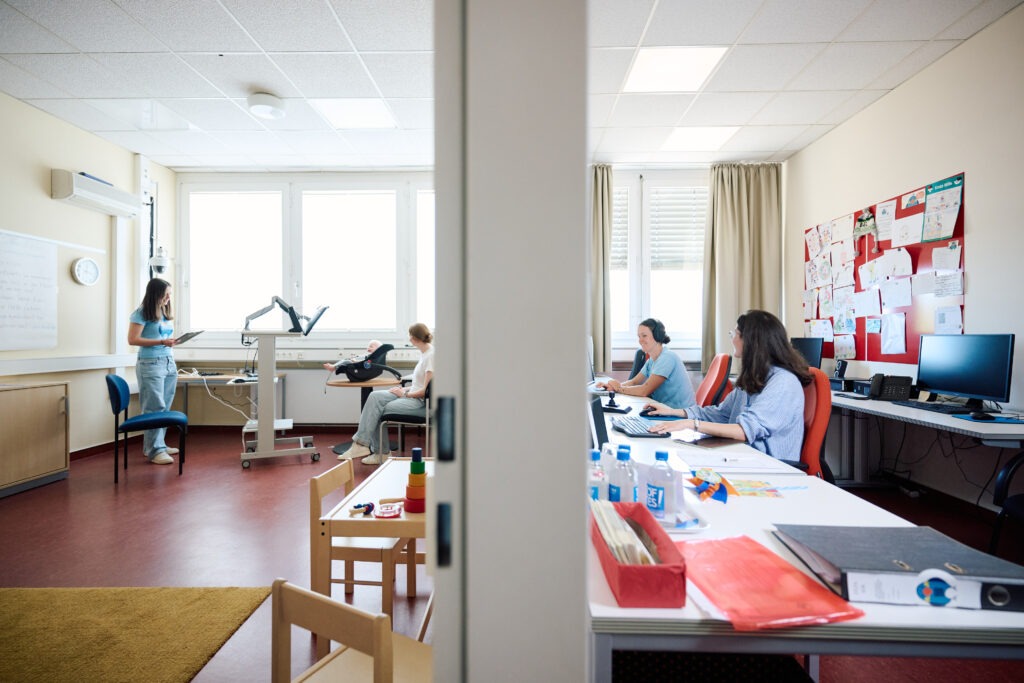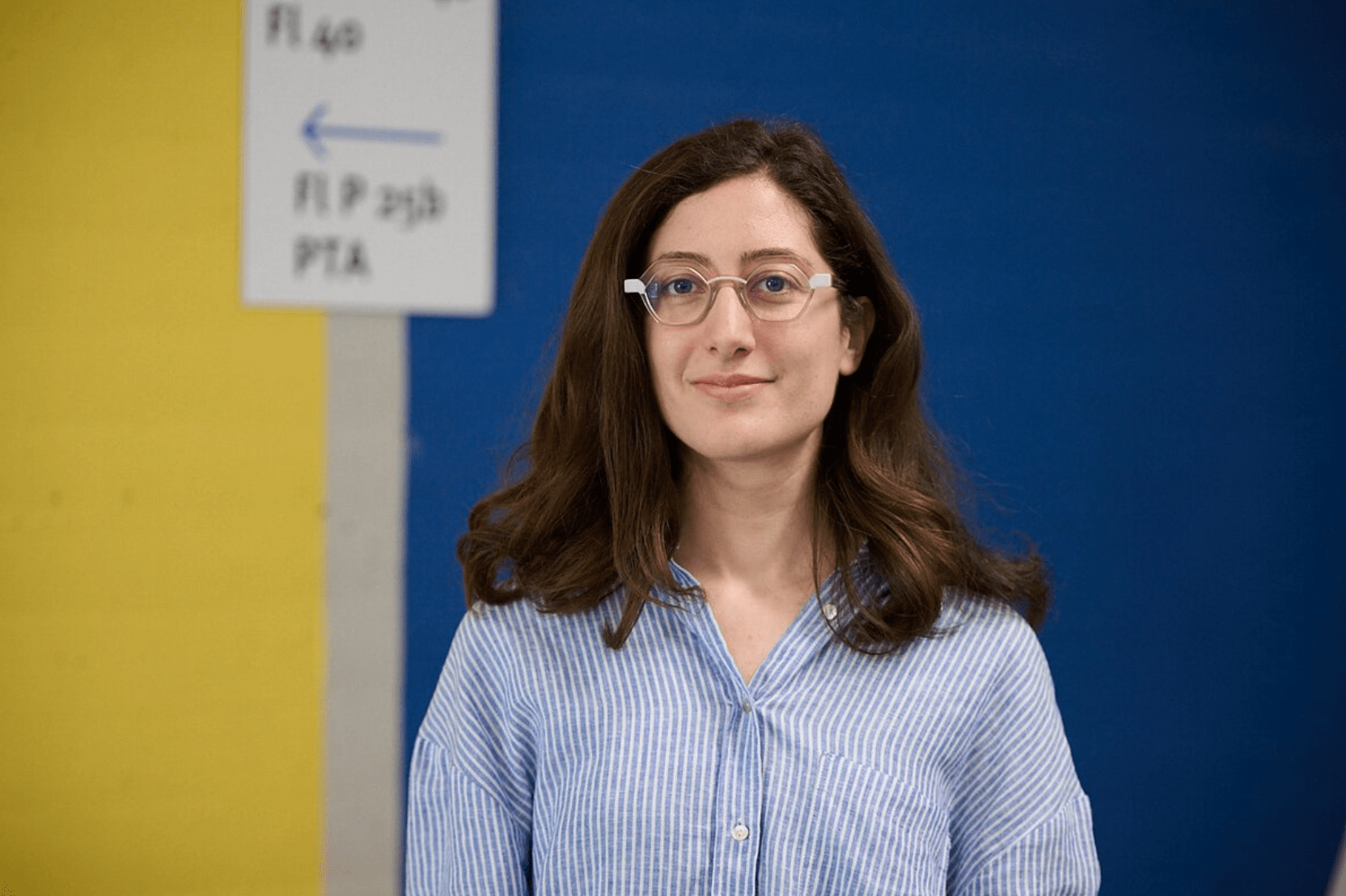
On a Journey Through Babbling, From Sounds to Words: an Interview with Dr. Laura Diprossimo
In the series “33 questions” we introduce, in no particular order, our WiRe Fellows who are currently working on a research project here at the University of Münster. Why 33? Well, if we think of the rush hour of life, it is kind of the age that lies in the middle. And we also like the number😉.
In today’s episode, we are speaking with Dr. Laura Diprossimo, an expert in developmental psychology and cognitive neuroscience, fascinated by how children learn to talk.
1. What motivated you to work in the field of Developmental Psychology and Cognitive Neuroscience?
I have been fascinated by human language ever since, but it was only during my clinical training as a speech and language therapist that I began to identify my specific research interests. Some children struggle to learn to talk, yet we know very little about the nature and causes of these difficulties. This gap in our knowledge motivated me to pursue interdisciplinary training in Developmental Psychology (PhD) and Cognitive Neuroscience (MSc) to study the mechanisms that support language development in children.
2. Describe your research topic in three words.
Contingency, Vocalizations, Vocabulary.
3. How would you explain your research area and topic to a child?
Developmental psychologists are like detectives who study how people grow and change. These detectives watch how babies and children learn new things, develop, and understand the world around them. They want to know exactly how we all change from tiny babies into grown-ups and what helps us learn and become who we are. Some developmental psychologists are “detectives” specifically interested in how babies learn to talk. They aim to understand how we all learn to communicate and understand each other! First, these detectives observe how babies start recognizing sounds and voices around them, like their parents talking. Next, the detectives watch for evidence when babies begin making sounds like “ba-ba” or “ma-ma”, practicing how to use their voices. Finally, the detectives solve the case by studying how babies start saying real words, like “bye” or “daddy,” and making short sentences, like “doggy gone”. These special detectives figure out how we learn to talk, from listening to sounds, to babbling, to speaking real words!
4. Describe your work in three words.
Experiments, Observations, Theory building.
5. How did you imagine the life of a scientist/researcher when you were a high school student? Is it actually different? In what way?
I didn’t know much about the life of a scientist back then, and probably I did not think too much about this option in high school. I do remember that a career in research was generally discouraged due to the rather difficult employment conditions.
6. In contrast, what does a typical work day look like for you now?
The activities I engaged with vary depending on the stage of the research project(s) I am involved. The typical day usually involves two or more of the following activities: searching for and reading the latest research evidence relevant to my project(s), meeting with collaborators, coordinating data collection, processing, visualizing, and analyzing data, and, last but not least, preparing conference presentations, pre-registrations, and manuscripts for publication.
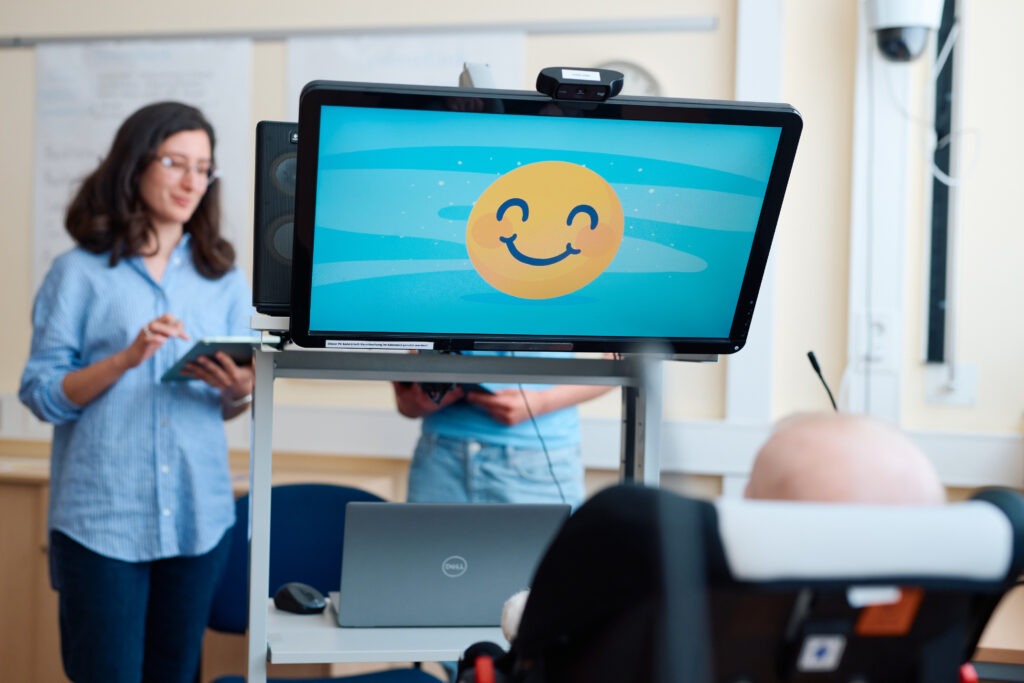
7. What do you like most about the “lifestyle” of a scientist / researcher? And what least of it?
I love the possibility to travel and keep learning. I don’t like that researchers in the post-doctoral phase are often appointed with short-term contracts of 1 or 2 years.
8. A good developmental psychologist and cognitive neuroscientist needs…?
An in-depth knowledge of the empirical evidence, models, and theories relevant to their own and surrounding research topic(s). Strong methodological skills are also needed, including the ability to design experiments, process and analyze a range of behavioral and neural measures. A collaborative attitude and a commitment to open science are also important.
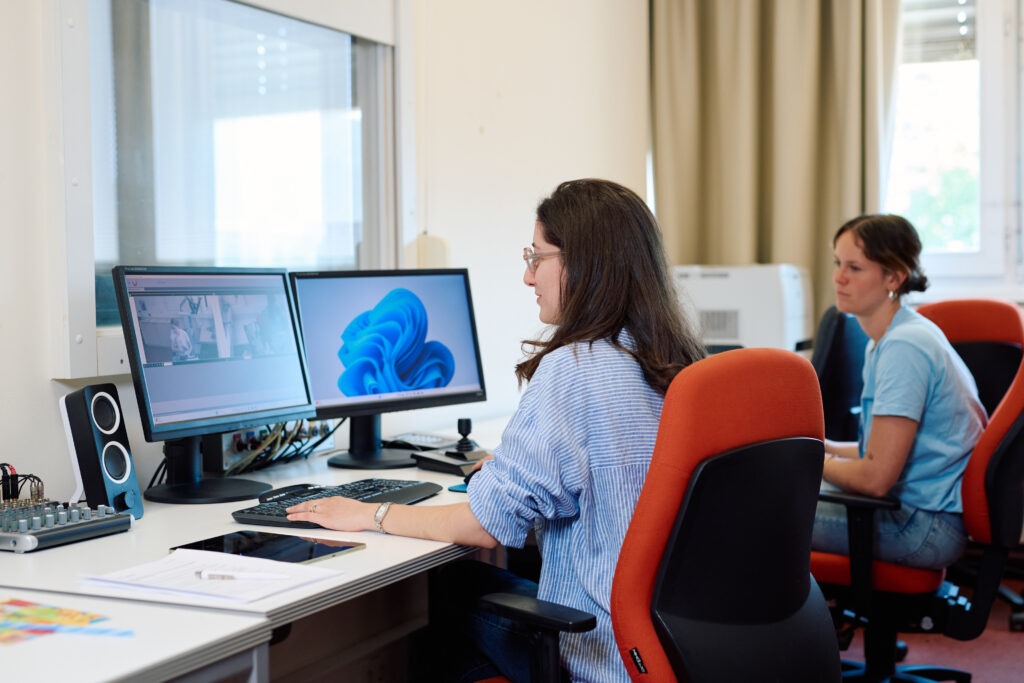
9. What keeps you motivated in your work day in and day out?
I think the greatest source of motivation comes from interactions with colleagues and the public around research in child development and its implications for theory and practice.
10. What is the best experience you have had as a scientist / researcher?
The opportunity to complete my PhD within a MSCA Innovative Training Network was a uniquely enriching experience. Specifically, I enjoyed exchanging ideas with scientists from different backgrounds, in a collaborative and interdisciplinary spirit. I am very fortunate as my WiRe project allows me to continue along these lines.
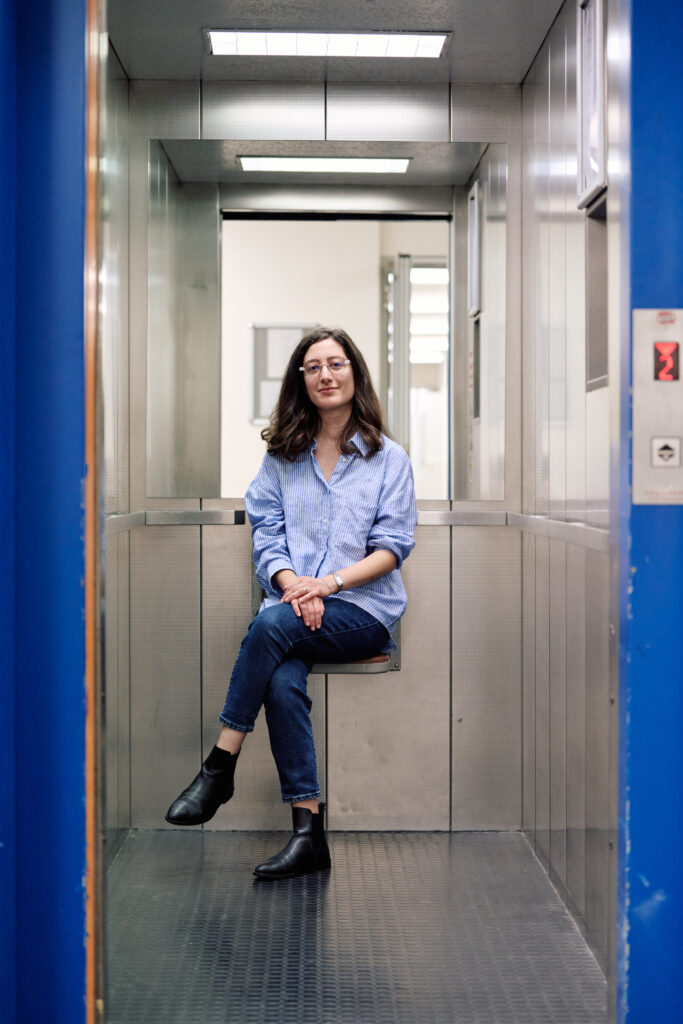
11. What was your biggest research disaster? What did you learn out of it?
Having had the privilege to discuss research ideas and plans in detail with more experienced researchers, I don’t have any experience of a “research disaster”. Yet the greatest challenge I faced at the beginning of my PhD was committing to specific and manageable research questions, while leaving out all the topics and nuances that interested me. With the guidance of an exceptional supervisor, I learned that there was a silver lining to this. Different ideas and interests can go into future grant applications.
12. Which (historical) important scientist / researcher would you like to have dinner with? What would you ask?
That would be Maria Montessori. I would ask her the secrets to endure and flourish as a scientist under challenging circumstances.
13. What do you consider the greatest achievement in the history of science / research / your field?
The recognition that large-scale collaborations are essential, and successful implementations such as Many Babies.
14. What was the funniest moment you had in science?
Having infant and children as research participants is often quite funny. I think the funniest moment for me was when I was told by a little one “I love your glasses!”.
15. If time and money were no object: Which research project would you like to do?
I would love to design a large, cross-cultural, longitudinal study to test hypotheses about language development at scale. I would love to make this large dataset open to the research community so that different research groups can explore relationships and generate new hypotheses to be tested in future studies. To test developmental theories, the gold standard would be to assess individuals and their environment intensively over extended timescales. This is often unfeasible due to limitations in time and budget under the most common funding schemes.
16. How often do you as a friend / partner / mother / daughter feel guilty when you have to meet a deadline – again?
Not too often, but it has happened.
17. In terms of work-life balance: How do you keep your head clear when you are stressed?
Taking a walk, practicing yoga, or dancing.
18. What is your favorite place to relax from research?
I like to relax in our garden and explore the nature of Münster and its surroundings.
19. Which hobby have you given up for a life in academia?
I couldn’t attend a regular dance course, as I happened to travel a lot for research during the last few years.
20. What or who inspired you to become a developmental psychologist?
That happened gradually while working with excellent mentors.
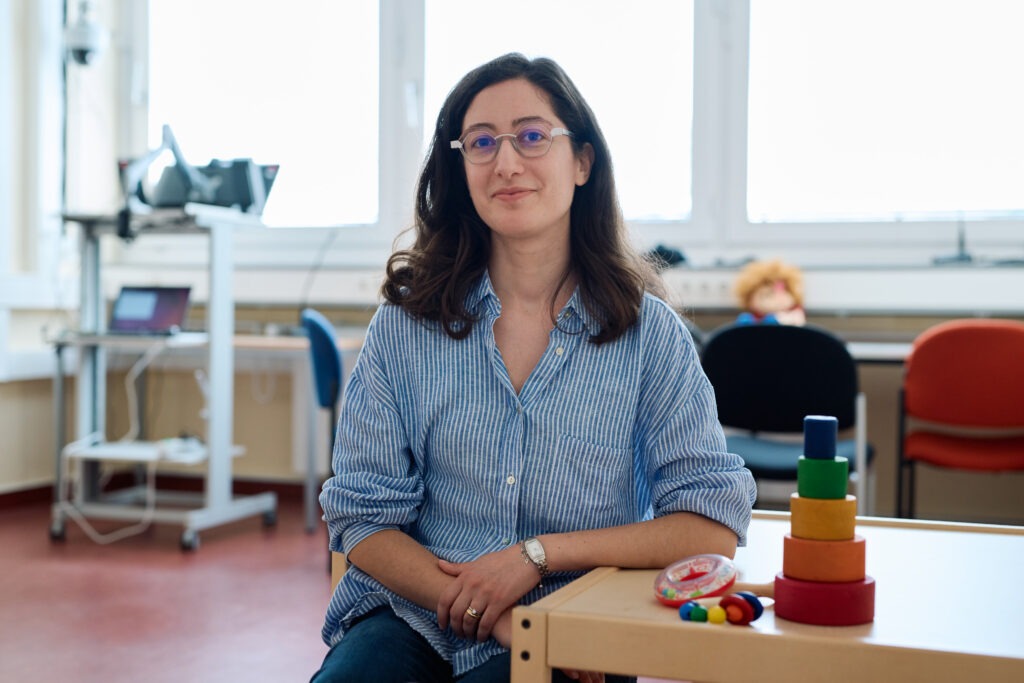
21. Which of your traits bothers you the most in your daily work? And which of your traits help you the most?
I find it difficult to take regular breaks from the screen, despite knowing it is essential to keep the eyes and body healthy. What helps me the most in my daily work is my passion and committment.
22. How did you survive your PhD time? And what advice and tips do you have for future PhD students?
An exceptional supervisor and a wonderful support network made my PhD experience a truly positive one. There were certainly difficult moments and there was time pressure, but I never felt alone, which really helped. I would advise future PhD students to enjoy their journey. I would also suggest them to focus on their PhD research and related trainings, but also keep some space to explore their broader interests and gain diversified experiences (organization, communication etc). In addition, I would advise future PhD students to collaborate, network, learn from others, and not to be afraid to share ideas in progress.
23. What is your favorite German word? Why?
One feature that I love about German language is the abundance of compounds – words made up of more words. I love them because they can convey rich and unique meanings effectively. My favourite is Feierabendbier
which refers to the beer one can drink at the end of the working day.
24. Do you think your career would have evolved differently if you were a man?
It’s possible.
25. How did you imagine your future as a child? What profession did you want to pursue?
I had many different ideas, but I knew early on that it had to do with language.
26. Where do you see yourself in 10 years?
I see myself as a professor, running my own lab.
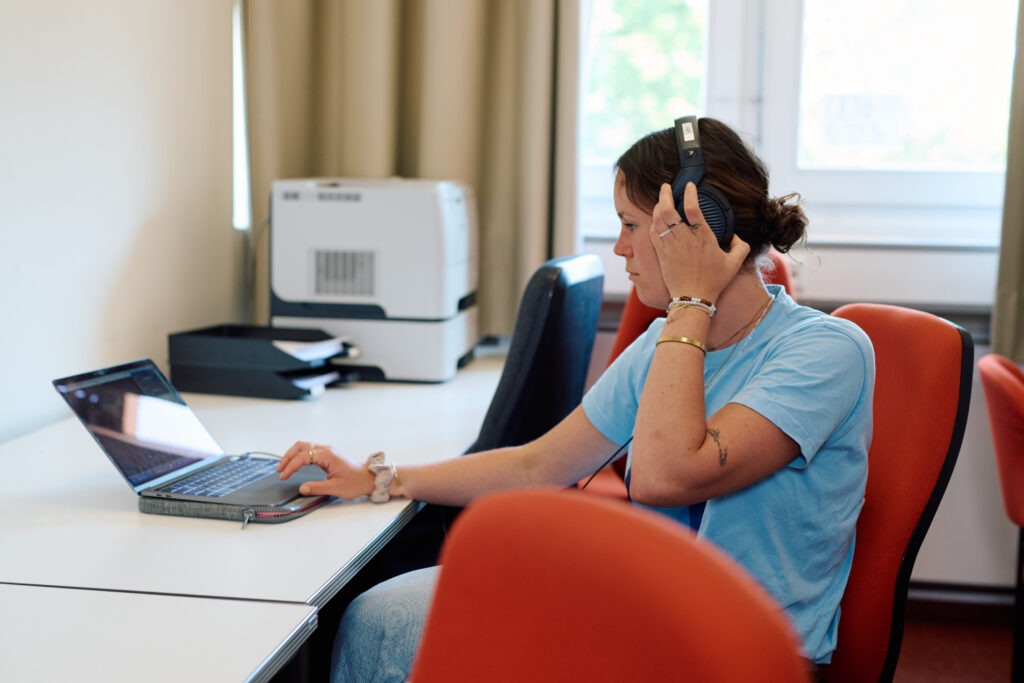
27. If you were the research minister of Germany, what would you do to improve the situation of women in science?
I would offer grants and tenure track positions only for women.
28. Which experience in the world of science disappointed you most?
Discrimination.
29. What direct or indirect relevance does your research have for society?
My research has a direct link to society. If we understand the factors that determine differences in how quickly children learn to talk, we are better positioned to design interventions that enable each and every child to reach their full developmental potential. Early language skills are important predictors of later academic achievement, employment and well-being.
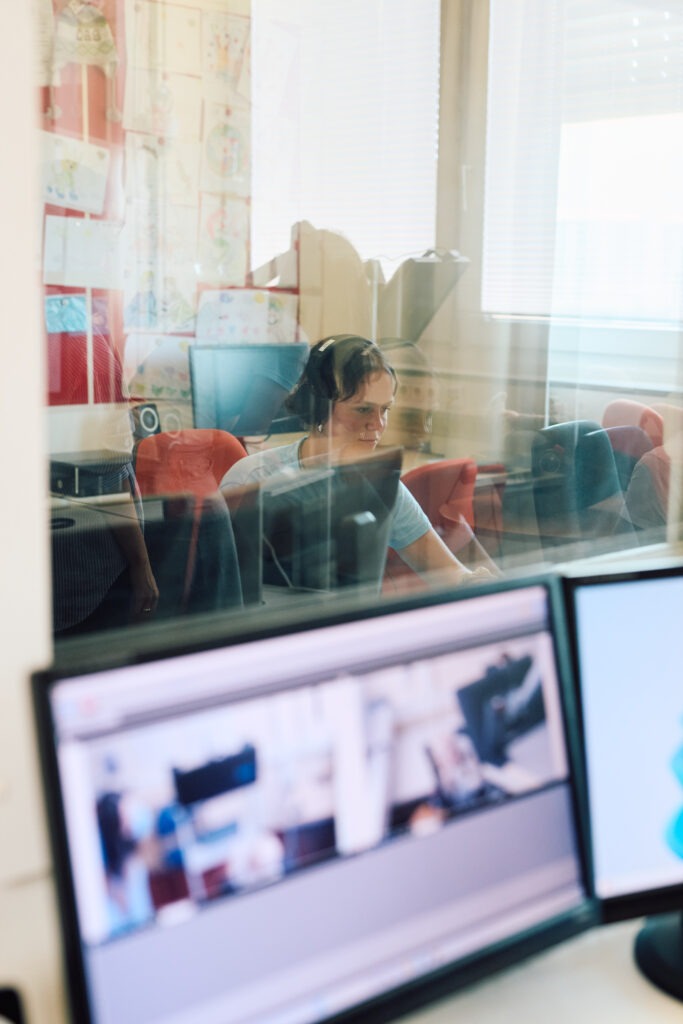
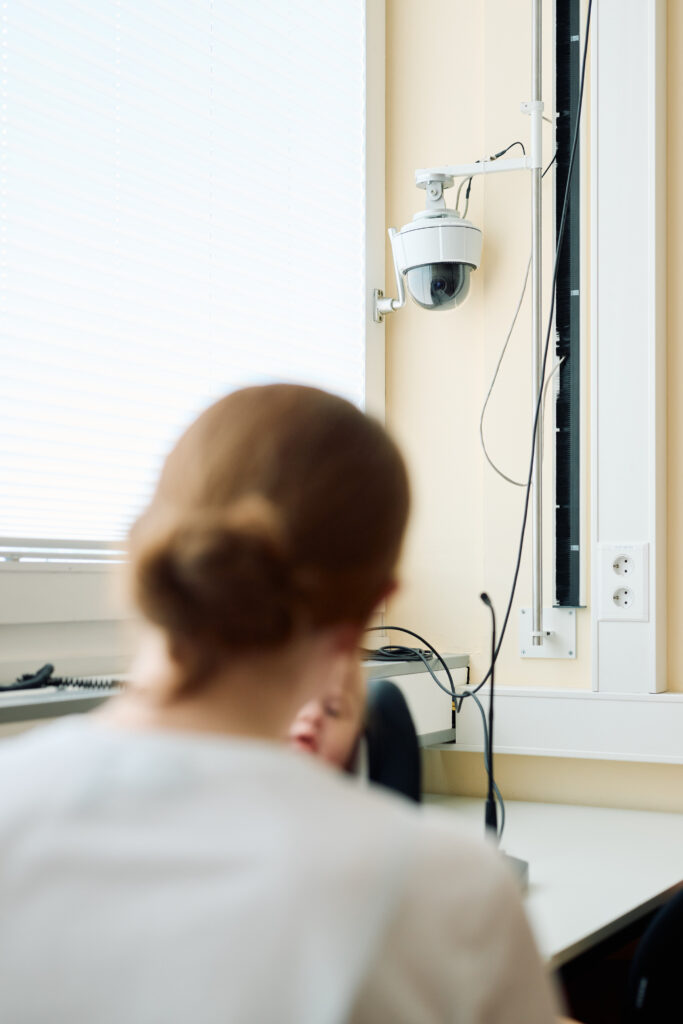
30. If you could travel in time: in which epoch and at which discovery or event would you have liked to have been there?
I would have loved to be there when the Rosetta Stone was found, and the hieroglyphs were deciphered.
31. What is your favorite place in Münster? What surprised you most about the University of Münster?
I really like the Domplatz. As for the University, I was positively surprised by the various opportunities for early-career researchers, both in terms of funding and support for career development.
32. What is the biggest difference between the academic system you have last done research in and the academic system as you experience it in Münster / Germany?
There are several differences in the structure of the PhD. In the UK system, there are regular appraisals to check in on progress, however, this is not the case in the German system, as far as I understood. Another difference is that the PhD is graded in Germany but not in the UK.
33. What makes you most happy about the world?
Kindness.
